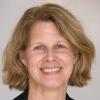History of Technology
Please set your timezone at https://www.chstm.org/user
Consortium Respectful Behavior Policy
Participants at Consortium activities will treat each other with respect and consideration to create a collegial, inclusive, and professional environment that is free from any form of discrimination, harassment, or retaliation.
Participants will avoid any inappropriate actions or statements based on individual characteristics such as age, race, religion, ethnicity, sexual orientation, gender identity, gender expression, marital status, nationality, political affiliation, ability status, educational background, or any other characteristic protected by law. Disruptive or harassing behavior of any kind will not be tolerated. Harassment includes but is not limited to inappropriate or intimidating behavior and language, unwelcome jokes or comments, unwanted touching or attention, offensive images, photography without permission, and stalking.
Participants may send reports or concerns about violations of this policy to conduct@chstm.org.
Upcoming Meetings
There are no currently scheduled upcoming events.
Past Meetings
-
May 16, 2023
Patrick McCray, University of California, Santa Barbara, "Designing Cultures" [Ch. 7 from READ ME: A Bookish History of Computing from Giant Brains to Everywhere Machines]
[Note: This chapter is from an unfinished book manuscript. Please do not circulate it outside of this working group.]
-
April 18, 2023
Julia Sanchez-Dorado, Technische Universität Berlin and Susan Sterrett, Wichita State University, "The meandering epistemic status of river models in American hydraulics (1922-1949)"
[Note: This article is still under review. Please do not circulate it outside of this working group.]
-
March 21, 2023
Jesse Smith, Science History Institute, "Behind the Scenes at the exhibit 'Downstream': Online and in person"
https://www.sciencehistory.org/downstream
-
February 21, 2023
Andrew Meade McGee, National Air and Space Museum, “The Electronic Origins of the Neoliberal Order: Computers, Digital Technologies, and the Re-Shaping of State-Market Relations, 1968-1988."
-
January 17, 2023
The Technology Working Group will not meet the week of January 16; the meeting has been cancelled.
Notice will follow shortly of the remaining program for the spring.
-
December 20, 2022
Hannah Conway, Harvard University, “Petroleum Sovereignty: Native Land & Life at the End of Louisiana’s Atchafalaya Basin since 1927”
-
November 15, 2022
SHOT: directions and themes in an ever-growing field: discussion led by Ben Gross, Linda Hall Library.
-
October 18, 2022
James Esposito, Ohio State University
"Canaries, Camouflets, and Carbon Monoxide: 'Proto Man' and Oxygen Breathing Apparatus in Britain’s Tunneling War 1915-1918"
An age-old technique of siege warfare, undermining saw wide use on the Western Front during World War I. Playing out as an intense “cat and mouse” game of detection, British and German tunnelers attempted to surreptitiously bomb each other in perfectly timed underground blasts known as camouflets. The omnipresent threat of being buried alive and poisoned by carbon monoxide redefined survival beneath the trenches, calling upon the services of the “Proto Man.” Donning oxygen artificial breathing apparatus and carrying a canary, the “Proto Man” was essential to survival in this extreme environment, a savior to many trapped underground. Britain’s success in the tunneling war came in large part due to the highly militarized mine rescuer “Proto Man” represented. British physiologist JS Haldane and mining expert Henry Briggs sought to improve the performance of these indispensable personnel, seeking to enhance both the technical qualities of the Proto breathing apparatus and the respiratory performance of individuals doing the heavy work of war. Although rescuers owed their lives to the canary, the birds died in droves. These fragile animals formed an invaluable facet of the “Proto Man” assemblage and were deemed incapable of replacement by any inanimate methods of gas detection. This article argues attempts at augmenting “Proto Man” were specifically focused on the fields of equipment engineering and laboratory study of respiratory performance, the only aspects of this posthuman assemblage deemed capable of improvement. What resulted was a strange hybrid of human, machine, and avian life exhibiting the limits of Edwardian science and the deep reliance of humans on animal sensing.
-
September 20, 2022
Andrew Meade McGee, National Air and Space Museum, “The Electronic Origins of the Neoliberal Order: Computers, Digital Technologies, and the Re-Shaping of State-Market Relations, 1968-1988."
POSTPONED - TBA
-
May 17, 2022
Thomas Zeller, University of Maryland, College Park
"Consuming Landscapes: What We See When We Drive and Why It Matters"
Group Conveners
-

Jennifer Alexander
Jennifer Alexander is an Associate Professor of the History of Science, Technology, and Medicine at the University of Minnesota, with specialization in technology and religion; industrial culture; and engineering, ethics, and society. Her publications include The Mantra of Efficiency: From Waterwheel to Social Control (Johns Hopkins University Press, 2008). Her current project is a book manuscript analyzing the international religious critique of technology that developed following WWII. She asks how religious and theological interpretations of technology have changed over time; how, over time, technologies and engineering have extended their reach into the human world over time through a developing technological orthodoxy; and how these changes have affected each other.
-

Benjamin Gross
Benjamin Gross is Vice President for Research and Scholarship at the Linda Hall Library in Kansas City, Missouri. He is responsible for managing the Library’s scholarly outreach initiatives, including its fellowship program. Before relocating to the Midwest in 2016, he was a research fellow at the Science History Institute and consulting curator of the Sarnoff Collection at the College of New Jersey. His book, The TVs of Tomorrow: How RCA’s Flat-Screen Dreams Led to the First LCDs, was published in 2018 by the University of Chicago Press.